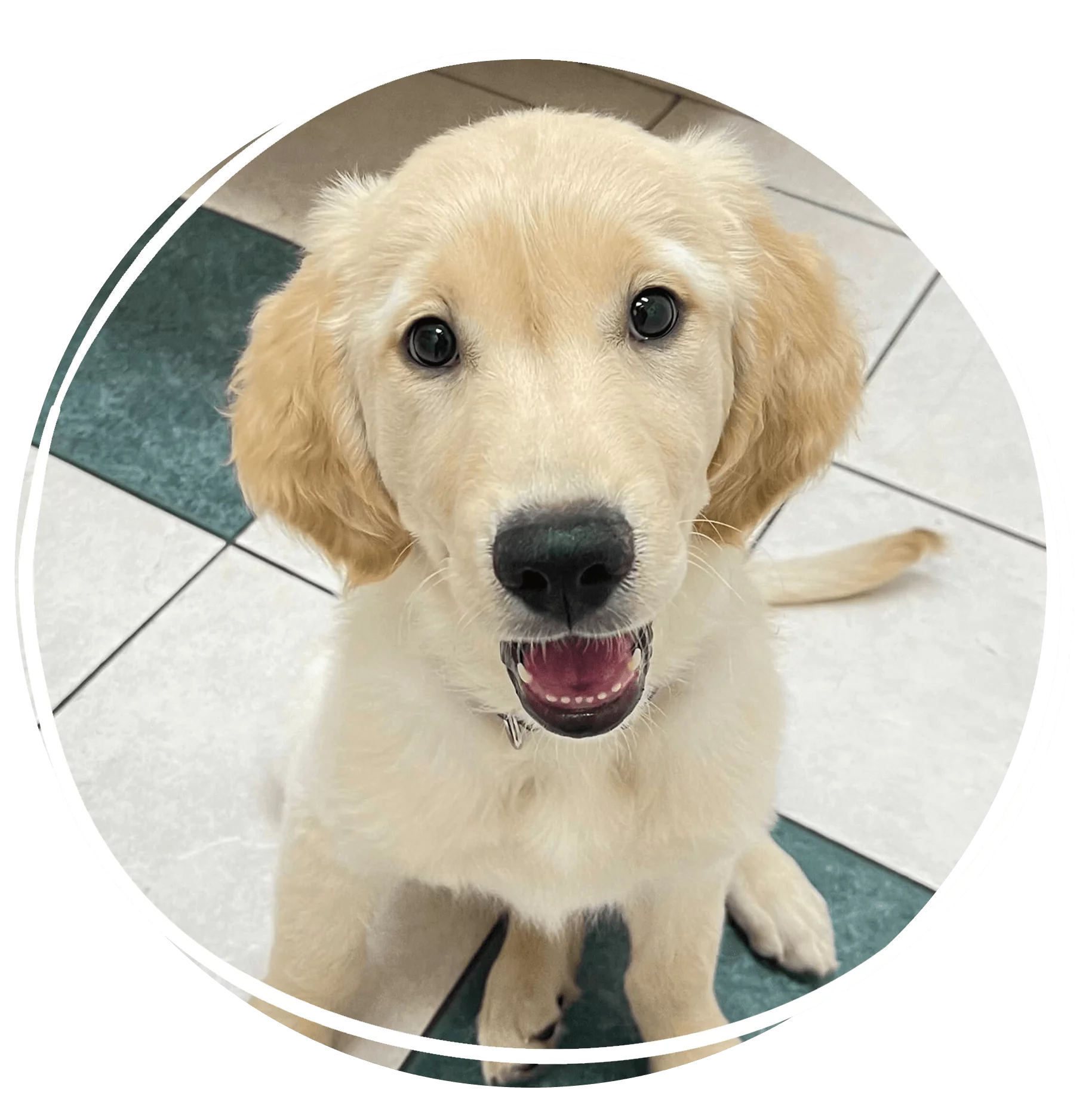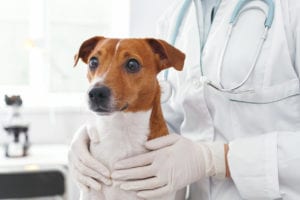
Our Veterinary Blog
Lakeland Pet Owners: Symptoms and Treatment for Kennel Cough
As a pet owner in the Lakeland area, you recognize how important it is to pay attention to your dog’s health and wellbeing. But did you know that your dog may be susceptible to a widespread illness known as kennel cough?
Kennel cough is the common name for a condition that is technically known as tracheobronchitis. This is an inflammation of the dog’s trachea and bronchial tubes which leads to a serious cough. It can be caused by viruses, but it is most commonly caused by a type of bacteria known as Bordetella.
In the article below, we’ll explain more about the symptoms and treatments of kennel cough so you can know more about what to expect if your dog comes down with this illness. Read on to find out more. If you have any questions or concerns, call Lakeland Animal Clinic at (863) 688-3338.

Symptoms of Kennel Cough in Dogs
- Goose honk cough: This is by far the most common symptom associated with kennel cough in dogs. If your dog is coughing frequently and the cough reminds you of the sound of a goose’s honk, then there’s a very good chance they have kennel cough. This type of specific cough is not related to many other dog illnesses.
- Sneezing and wheezing: Sneezing and wheezing both go along with the goose honk cough, although they are not quite as commonly found in dogs with kennel cough. They can also be symptoms of allergies and other conditions, so it’s important to have your dog checked by the vet to diagnose them for sure.
- Runny eyes and runny nose: Although it is even less common for dogs with kennel cough to have a runny nose or runny eyes, it can still happen. If these symptoms occur along with any others on this list, then you can be pretty sure kennel cough is the culprit.
- Trouble breathing correctly: Dogs with very serious cases of kennel cough may have difficulty breathing correctly. If you notice your dog’s sides are heaving when they try to breathe or if they are panting heavily even without recent activity, this can be a sign they aren’t breathing the right way. Check their gums; if they look too pale, blue, or very dark red, then they need to go to the emergency vet right away.
- Lethargy and loss of appetite: Lethargy is common in dogs with more serious cases of kennel cough. Dogs may simply not feel like being very active, since activity usually triggers a coughing fit. Loss of appetite is much less common with kennel cough, but it does still occur.
Treatments for Kennel Cough in Dogs
- Antibiotics for bacterial kennel cough: Kennel cough that is caused by Bordetella can be treated with antibiotics. These are usually given orally, but your vet will let you know if your dog needs to take a different type of antibiotic, including an inhaler variation.
- Cough medication: Some dogs who are suffering from severe and frequent coughing fits may need to take a cough medication. Although this may be similar to the type of cough medicine humans take for colds, you should never give your dog a human cough medication under any circumstances. This could be very dangerous.
- Steroids for very severe cases: Dogs who are going through a severe case of kennel cough may need steroids so their bodies can heal from the inflammation associated with the disease. Your vet will prescribe steroids if needed. They may be oral or they could be given through an inhaler, depending on your dog’s individual needs.
- Rest and fluids: Most dogs are able to get over a bout of kennel cough on their own with simple rest and fluids. Just like a human with a cold, a dog with kennel cough needs to take time to relax and stay hydrated so she can feel better as soon as possible.
If you suspect your dog might have kennel cough, the first thing you should do is think about where they have been recently. Have they been boarded in a facility around other dogs? Have they been to the vet, dog park, or another location with lots of dogs present? If either of these is true, then there is a good chance they might have been exposed to Bordetella or other types of viruses and bacteria that might cause kennel cough.
From there, you should call Lakeland Animal Clinic at (863) 688-3338 and schedule an appointment. Although kennel cough is not usually fatal, it can be difficult for some dogs to overcome this condition. Your vet will be able to give you more information about your specific dog and help her get back to her usual, healthy self in no time.
Keep in mind, too, that if your dog is a puppy, a senior, or a dog with an underlying health condition, then they may be more at risk from kennel cough.
Recent Posts
About Us
Family is family, whether it has two legs or four. At Lakeland Animal Clinic, we've spent the last 40 years healing and caring for your pets. As a family-operated practice, we know that family is about more than simply being related. Animals give us the ability to develop strong bonds and feel great compassion for a fellow living creature.
